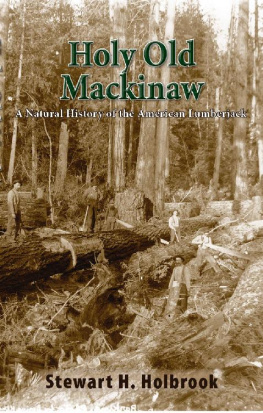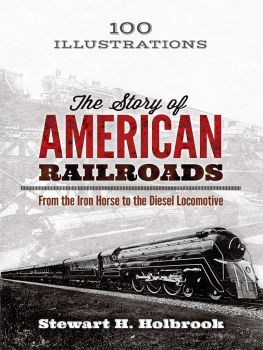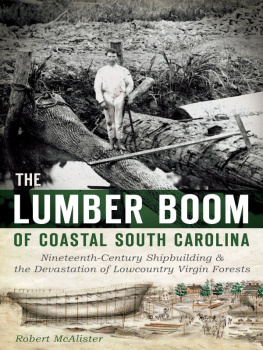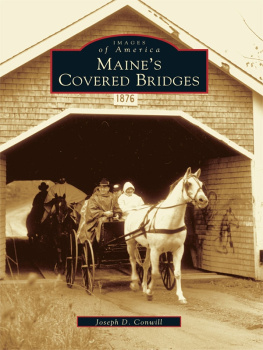Holy Old Mackinaw
A Natural History of the
AMERICAN LUMBERJACK
Stewart H. Holbrook

an imprint of Epicenter Press
Seattle, Washington
Copyright 2016 Stewart Holbrook
Copyright 2016 Sibyl Holbrook
Originally published by The Macmillan Company Copyright 1951
No part of this publication may be reproduced of transmitted in any form or by any means, electronic or mechanical, including photocopy, recording, or any information storage or retrieval system without permission in writing from the publisher.
Library of Congress: 2015948682
Print ISBN: 978-1-941890-06-6
Ebook ISBN: 978-1941890-073
Smashwords Edition
Cover image courtesy of University of Washington, Darius Kinsey Photo Collection. Used with permission.
Cover and interior layout and design: Jeanie James, Shorebird Creative LLC.
eBook by: Aubrey Anderson
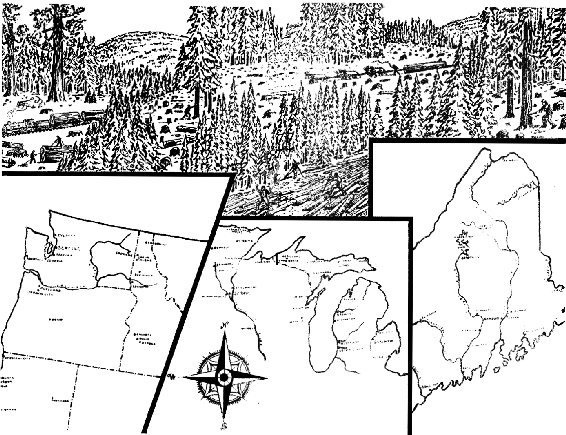
Foreword
There has been a plenty of books about pioneers in the United States. Explorers have been the subject of much fact and fiction; so have trappers, traders, and missionaries to the Red Men. Enough to fill a large library has been written about cowboys, Indian fighters, railroad builders, and the men and women of the covered wagon. If there has been a serious book about the American logger it has escaped my notice, and I have been looking for a long time.
The logger I mean is the lad who ranged three thousand miles through the forest from Maine to Oregon, steel calks in his boots, an ax in his fist, and a plug of chewing handy. The lad who at intervals emerged from the dark savage woods for the purposes of calling on soft ladies and drinking hard liquor.
This logger was as much a pioneer as any of them, more than most. Before houses could be built and farms plowed there had to be a clearing and there had to be logs and boards. The loggers took care of the business, hewing down one forest after another. It was hard and dangerous work, but loggers were a tough race, a species early set apart from farmers and townsmen of all sorts, and they retained their primitive purity until civilization caught up with the timber line and laid them low.
The pure logger strain came into being on the grim wooded shores of Maine three hundred years ago. The strain probably rose to fullest stature in the Lake States of the late nineteenth century, and it is now passing out of existence on the West Coast and in the Pacific Northwest.
It isnt a matter of timber. There is plenty of timber left. It isnt likely that Americans will ever know a timber famine. But the timber is being harvested, mostly, by a new and different breed of menmen who smoke many cigarettes but chew little plug; men with families, who wear conventional clothing, vote in elections, and play tennis and golf. Few of them need to know how to handle ax or peavey, and few of them are given to kicking plate glass out of barroom windows. They roar no louder than their city brothers whom they so greatly resemble. In short, they are good, solid, commonplace American citizens.
A mere corporals guard remains of the boys who knew logging in its great and red-eyed heydaywhen streams and rivers from Maine to Minnesota were filled with long logs, and bellowing bull teams lurched down the skidroads of the Far Western timber. Boy and man, for more than thirty years, I have known these rugged lads at first hand and for them I have an affection that is very deep.
Because they have been so scurvily ignored by academic historians and because we shall probably never see their like again, I have tried to set down an honest picture of the American lumberjack, at work and at play, as he has performed for the past three centuries. Only the lumberjack of the timbered North is considered. Logging in Southern pine and cypress is a story in itself and it deserves to be written by someone who knows the subject.
Portland, Oregon.
S.H.H.
Saga of The Jigger
It was told of Jigger Jones that when he was a young head-chopper in the Maine woods some fifty years ago he would walk a felled spruce, barefoot, and kick off every knot from butt to top. That was before my time in the timber, and I never saw him do it, yet all who knew The Jigger, even in his old age, doubted the report not at all. He was what loggers meant when they said a rugged man, and he was almost but not quite indestructible.
Jigger Jones also was almost the last of his racethat race of men who cut a swath of timber from eastern Maine to western Oregon and yelled like crazed devils every spring, when the drive was in and they were released from the savage woods for a few days, as they pounded the bars in Bangor, Saginaw, St. Paul and Seattle.
Jigger didnt know it, of course, but his life and especially his death had the dignity and tragedy of a classic pattern. Into them were packed all the three hundred years of experience it required to produce and destroy a unique and mighty race of men. Some of that tribe, as in Jiggers case, were killed physically by civilization; as for the others, civilization has mowed them down spirituallyremoving the high, wild color from their lives, ironing flat their personalities, and reducing them to the status of proletarians. The professors would term Jiggers brief story an epitome, and so it was.
I didnt catch up with Jigger Jones until early in 1910. It was at a logging camp in northern New England, and the weather was around thirty-five below, accounted fair coolish even in those parts. Jigger was standing in the camp yard when I, a young punk of a new camp clerk, hove in on the tote team.
Jigger wore neither toque nor mittens, which was unusual in that clime, but I looked first of all at his feet, to know by witness if the legends I had heard about him were true. They were. The Jigger was barefoot. He walked up and down on the packed, creaking snow, passing the time of day with the teamster, and occasionally he would stop and stand on one leg like a stork, rubbing one foot against his pants leg. It was a fact that he never wore socks, summer or winter, except on rare and state occasions such as funerals, when he felt that he should put on all the style possible. Around camp he commonly went barefoot, although he would pull on a pair of shoepacks or rubbers when he went into the woods to take charge of the crew. A red woolen undershirt and drawers and a pair of heavy pants completed his outfit.
Jigger was an excellent foreman in the old tradition. Like all those old camp bosses, he was no mere cog in an industrial machine, a number on a payroll. Jigger was an individual who stood upon his two hind legs and asked no quarter from Man, Capital, or even God, in the form God usually showed Himself to Jigger, which was high water, deep snow, or a thaw in January.
None other than Jigger Jones is credited with the famous lumberjack slogan that would put any chamber of commerce to shame. If on arrival in a new camp he happened to be well oiled, as was usually the case, he was given to letting the boys know about it by roaring I can run faster, jump higher, squat lower, move sideways quicker, and spit further than any son-of-a-bitch in camp. This genial announcement was always made in good humor, but in good faith as well. If he couldnt live up to quite all of it, he could come near enough to cause grave consideration in the minds of those who thought otherwise.
As a camp push, or foreman, he had few equals. He knew, for instance, when it was going to rain, snow, or freeze at least twenty-four hours before it happened, no small feat in New England and Quebec. When asked what signs he used, he said all he knew about the weather was what he read in the forecasts in
Next page
